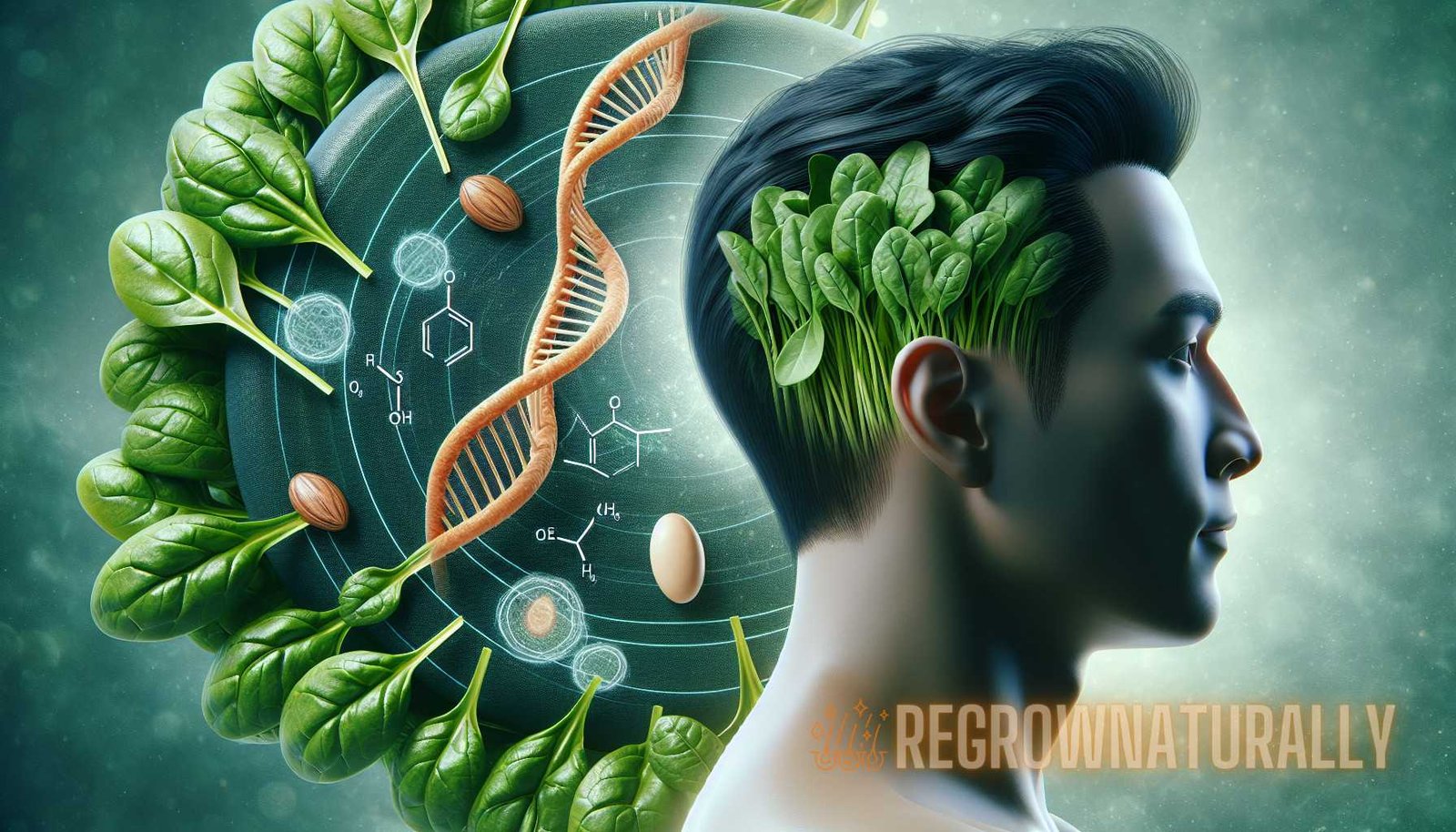Introduction
Vitamins play a crucial role in maintaining our overall health and well-being. They are essential for various bodily functions and are particularly important for hair growth and maintenance. In this article, we will delve into the science of nutritional balance and unravel the role of essential vitamins in promoting exquisite hair growth. We will explore the impact of vitamins on hair health, discuss the recommended daily intake, and highlight the best sources of these vitamins. So, let’s dive in!
The Link Between Vitamins and Hair Growth
Hair growth is a complex process that involves multiple factors, such as genetics, hormonal balance, and nutritional status. While genetics and hormones play a significant role, nutrition also plays a crucial role in supporting healthy hair growth.
Vitamins are organic compounds that are essential for our body’s functioning. They act as cofactors for enzymes, facilitating countless biochemical reactions. When it comes to hair growth, certain vitamins are particularly important, as they provide the necessary building blocks for hair cells and support the overall health of the hair follicles.
Let’s take a closer look at some of the key vitamins and their specific roles in promoting hair growth:
Vitamin A
Vitamin A is crucial for the growth and maintenance of all body tissues, including the hair. It helps in the production of sebum, which moisturizes the scalp and keeps the hair healthy. Additionally, vitamin A is involved in the production of keratin, the key protein that makes up the structure of our hair strands.
Foods rich in vitamin A include carrots, sweet potatoes, spinach, and mangoes. It is important to note that excessive intake of vitamin A can lead to hair loss, so it is essential to consume it in moderation.
Vitamin B Complex
The B-vitamin complex consists of several vitamins, including Biotin (B7), Niacin (B3), Folate (B9), and Cobalamin (B12), which all play a crucial role in hair growth and health.
- Biotin (Vitamin B7): Biotin is often referred to as the “hair growth vitamin” because it plays a key role in the production of keratin, which is essential for strong and healthy hair. It also helps in the synthesis of fatty acids, which are crucial for maintaining the health of the scalp.
- Niacin (Vitamin B3): Niacin improves blood circulation to the scalp, ensuring that the hair follicles receive an ample supply of nutrients and oxygen. This helps in promoting hair growth and preventing hair loss.
- Folate (Vitamin B9): Folate is essential for DNA synthesis and cell division, which are crucial processes for hair growth. It also aids in the absorption of iron, another nutrient that is vital for healthy hair.
- Cobalamin (Vitamin B12): Vitamin B12 is involved in the formation of red blood cells, which transport oxygen and nutrients to the hair follicles. A deficiency in vitamin B12 can lead to hair thinning and hair loss.
The best sources of B vitamins include whole grains, lean meats, fish, eggs, legumes, and leafy green vegetables.
Vitamin C
Vitamin C is an antioxidant that helps in the production of collagen, a protein that provides strength and structure to the hair. It also aids in the absorption of iron, which is essential for healthy hair growth.
Citrus fruits, strawberries, kiwi, bell peppers, and tomatoes are excellent sources of vitamin C.
Vitamin D
Vitamin D plays a crucial role in hair follicle cycling and hair growth. It is believed to help in the creation of new hair follicles, thereby promoting hair density and thickness. Vitamin D also plays a role in reducing hair loss.
The primary source of vitamin D is sunlight. However, it can also be obtained from fatty fish, fortified dairy products, and egg yolks.
Vitamin E
Vitamin E is an antioxidant that helps in reducing oxidative stress and supporting hair growth. It also improves blood circulation to the scalp, thereby promoting nutrient delivery to the hair follicles.
Almonds, sunflower seeds, spinach, and avocados are excellent sources of vitamin E.
Zinc
While not a vitamin, zinc is a mineral that is essential for healthy hair growth. It helps in regulating hormone levels, promoting the production of keratin, and supporting the immune system, which can indirectly affect hair growth.
The best sources of zinc include oysters, beef, pumpkin seeds, and lentils.
Recommended Daily Intake of Hair Growth Vitamins
Now that we know the key vitamins that play a significant role in hair growth, it is essential to understand the recommended daily intake (RDI) to ensure optimal hair health.
The RDI for vitamins and minerals varies depending on factors such as age, sex, and overall health. It is always best to consult with a healthcare professional or a registered dietitian to determine your specific needs. However, here are the general RDIs for the vitamins we discussed:
- Vitamin A: The RDI for vitamin A varies between 700 and 900 micrograms depending on age and sex.
- Biotin (Vitamin B7): The RDI for biotin is 30 micrograms for adults.
- Niacin (Vitamin B3): The RDI for niacin ranges from 14 to 18 milligrams depending on age and sex.
- Folate (Vitamin B9): The RDI for folate is 400 to 600 micrograms depending on age and sex.
- Cobalamin (Vitamin B12): The RDI for vitamin B12 is 2.4 micrograms for adults.
- Vitamin C: The RDI for vitamin C is 75 to 90 milligrams depending on age and sex.
- Vitamin D: The RDI for vitamin D is 600 to 800 international units (IU) depending on age and sex.
- Vitamin E: The RDI for vitamin E is 15 milligrams for adults.
- Zinc: The RDI for zinc is 8 to 11 milligrams depending on age and sex.
It is important to note that excessive intake of certain vitamins, such as vitamin A, can have adverse effects. Therefore, it is crucial to adhere to the recommended dosages and not exceed them without consulting a healthcare professional.
Best Sources of Hair Growth Vitamins
Consuming a well-balanced diet is the best way to ensure an adequate intake of hair growth vitamins. Here are some of the best food sources for each vitamin:
Vitamin A:
- Carrots
- Sweet potatoes
- Spinach
- Mangoes
- Kale
- Apricots

Biotin (Vitamin B7):
- Eggs
- Salmon
- Almonds
- Sweet potatoes
- Avocados
- Sunflower seeds
Niacin (Vitamin B3):
- Turkey
- Tuna
- Chicken breast
- Salmon
- Lentils
- Brown rice
Folate (Vitamin B9):
- Leafy green vegetables (spinach, kale, broccoli)
- Lentils
- Avocado
- Oranges
- Asparagus
Cobalamin (Vitamin B12):
- Beef
- Shellfish (clams, oysters)
- Fish (salmon, trout)
- Fortified cereals
- Milk and dairy products
- Eggs
Vitamin C:
- Oranges
- Strawberries
- Kiwi
- Bell peppers
- Tomatoes
- Guava
Vitamin D:
- Fatty fish (salmon, mackerel)
- Fortified dairy products
- Egg yolks
- Mushrooms
Vitamin E:
- Almonds
- Sunflower seeds
- Spinach
- Avocados
- Wheat germ oil
- Broccoli
Zinc:
- Oysters
- Beef
- Pumpkin seeds
- Lentils
- Chickpeas
- Peas
Conclusion
Ensuring a sufficient intake of hair growth vitamins is essential for maintaining healthy and luscious hair. Vitamins such as vitamin A, B complex, C, D, E, and minerals like zinc play a crucial role in hair growth and health. By consuming a well-balanced diet rich in these vitamins and minerals, you can support the overall health of your hair and promote its growth. Remember to always consult with a healthcare professional or a registered dietitian to determine your specific nutritional needs and follow the recommended dosages. With the right balance of nutrients, you can unlock the secrets to exquisite hair growth!
For more success stories and valuable insights on hair growth, check out this exceptional article or read these real-life success stories of thick, luscious hair.



